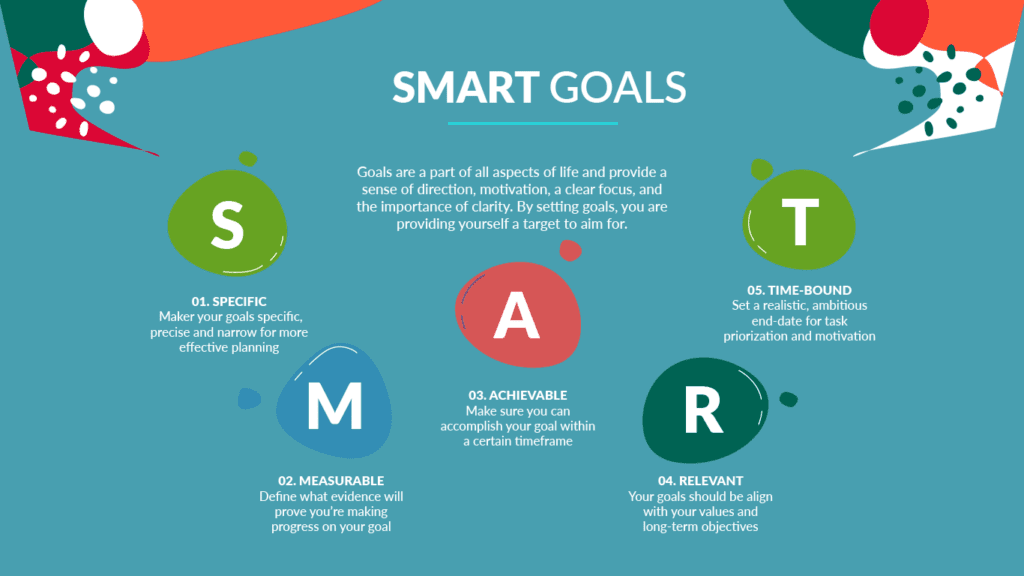Career Development and Job Search Strategies for 2024 in New Zealand
Introduction to Career Development
Career development is a strategic and systematic process that involves setting personal goals and utilising strategies to achieve professional growth. It aligns an individual's skills, interests, and values with organisational objectives, ensuring a mutually beneficial relationship between employee career progression and organisational success.
Career development is significant as it attracts and retains top talent, enhances employee engagement, and drives organisational productivity. It includes components such as self-assessment, goal setting, career exploration, skill development, and action planning.
Setting Career Goals with The Career Academy NZ
The SMART Goals Framework is a powerful tool for setting career goals that are clear, focused, and practical. At The Career Academy NZ, we offer a range of courses designed to help you achieve your career aspirations. Let's break down each component of the SMART framework with detailed explanations and examples tailored to our courses.

Specific: Know Exactly What You Want
Goals that are not clear often lead to results that are not clear. To truly get ahead in your career, your goals must be very specific. Instead of just saying, “I want to get better at things,” point out the exact skills you want to learn or improve. Being specific helps you focus your efforts and see your progress clearly.
For example, Instead of saying, "I want to get better at accounting,," you could say, “I want to improve my accounting skills by finishing the Certificate in Accounting from The Career Academy NZ.” This makes it clear what you want to do and how you will do it, giving you a clear learning path.
Think about the difference between “I want a better job” and “I want to become a certified payroll specialist in the next year by finishing the Certificate in Payroll Administration from The Career Academy NZ.” The second one names a specific job, a certificate, a time limit, and the school. This makes it a clear target.
Measurable: See How Far You've Come
A goal you can't measure is just a wish. Measurable goals let you check your progress, celebrate small wins, and stay motivated as you grow your career. Numbers and facts show you clearly how well you are doing.
If you want to learn more about managing a business, you need to measure your learning. A good measurable goal is, “I will finish one part of the Diploma in Business Administration from The Career Academy NZ every two weeks.” This sets a clear speed and lets you watch your learning path.
To track your progress well, use online tools like Trello or Asana. These tools help you make lists, set due dates, and see your achievements. This keeps you organised and excited about your studies and job goals.
Achievable: Set Goals You Can Really Reach
It's good to dream big, but your goals must be possible to reach. Setting goals that are too hard can make you feel bad and give up. Look at what you have now, how much time you have, and what you can do. Make sure your goals are possible, but still push you to grow.
If you want to learn new bookkeeping software, an achievable goal could be, “I will finish the Accounts Administration and Payroll Pathway from The Career Academy NZ in the next three months and practice by handling the books for a small project.” This breaks a big goal into smaller, easier steps, mixing learning with real-world practice.
Use simple worksheets or templates you can find online. These help you break down big goals into smaller, easier tasks. These tools can guide you through setting SMART goals, making the journey feel less scary and more organised.
Relevant: Make Your Goals Fit Your Big Picture
Your career goals should truly matter to you and match your long-term plans. When goals are relevant, your hard work helps you reach your main job vision. This keeps you interested and focused on what is most important.
If you want to become a certified project manager, a relevant short-term goal would be, “I will finish the Diploma in Project Management from The Career Academy NZ in the next six months.” This goal directly helps you reach your bigger aim, showing a clear way forward.
Keeping your short-term goals in line with your bigger career path, or even your company’s goals, is very important. This connection keeps you motivated and makes sure every step you take brings you closer to your main job destination.
Time-bound: Set a Finish Line for Your Goals
A goal without a deadline often gets put off. Setting a time limit makes things urgent and helps you decide what to do first. It turns unclear ideas into clear plans.
If you want to get better job qualifications, set a clear deadline: “I will pass the Xero certification exam from The Career Academy NZ by the end of the year.” This time-limited promise gives you a clear target and a plan for your study time.
Check your progress regularly against these deadlines. Set small goals along the way to make sure you are on track and can make changes if needed. This active way of managing your time is key to reaching your goals.
Putting It All Together: Your Full Plan for Job Success
The real strength of the SMART plan comes from using all its parts together. Let’s look at a full example to show this:
Goal: “I want to become a certified payroll specialist (Specific) by finishing the Certificate in Payroll Administration from The Career Academy NZ (Achievable) in the next 12 months (Time-bound). I will study for 10 hours each week (Measurable) and this certificate will help me get a senior payroll officer job (Relevant).”
This example shows how each part of the SMART plan helps create a clear, active, and exciting goal. By using this organized approach and the many courses from The Career Academy NZ, you are not just setting goals. You are carefully building a path to real and lasting career growth. Remember, your career journey changes, so checking and updating your SMART goals often is important. This makes sure they still fit your changing dreams and the always-changing job world.
Understanding the Job Market
New Zealand's job market in 2024 is dynamic and influenced by several key trends. According to Stats NZ and the Ministry of Business, Innovation, and Employment (MBIE), high-demand industries include technology, healthcare, and trades. Understanding these trends is crucial for job seekers and career developers. Here's a closer look at how these trends relate to courses offered by The Career Academy NZ:

Accounting and Bookkeeping
With businesses continually needing accurate financial records, there's a high demand for professionals in accounting and bookkeeping. Courses like the AAT Accounting Pathway Program, Certificate in Accounting, and Certificate in Bookkeeping can provide the necessary skills to enter and advance in this field.
Explore more courses in Accounting and Bookkeeping.
Business and Administration
The administrative roles are vital across all industries. The Certificate in Business Administration and Diploma in Business Administration can prepare you for these in-demand positions, while courses like Certificate in Accounts Administration & Payroll and Certificate in Personnel Management & Human Resources are highly relevant.
Explore more courses in Business and Administration
Technology
The tech sector's growth creates opportunities for those skilled in software and IT. Courses like the Advanced Certificate in Microsoft Excel, Certificate in Microsoft Essentials, and Diploma in Excel can provide you with valuable tech skills.
Healthcare Administration
Healthcare is another booming sector. Administrative roles in this field are crucial.
The Certificate in Medical Reception and Certificate in Medical Terminology are perfect for those looking to enter medical administration. Explore more courses
Hospitality and Tourism
As tourism rebounds, there's a growing need for skilled professionals in this industry. The Diploma in Hospitality & Tourism and Certificate in Event Management can prepare you for various roles in this sector.
Explore more courses in Hospitality & Tourism
Animal Care
For those passionate about animal welfare, courses like the Certificate in Animal Care, Diploma in Veterinary Assistant & Animal Welfare, and Dog Grooming Business Pathway provide a pathway to fulfilling careers.
Explore more courses in Animal Care
Building a Professional Network
Networking is essential for career growth in New Zealand, opening doors to opportunities, mentorship, and industry insights. Here are tailored, up-to-date strategies and resources for 2025:
Attend Industry Events
Participating in conferences, seminars, and workshops is an effective way to meet professionals and stay informed about the latest trends. Notable upcoming events in New Zealand include:
- New Zealand CIO Summit & Awards: Aug 19–20, 2025, Auckland
- DigiMarCon New Zealand 2025 (Digital Marketing): Aug 7–8, 2025, Auckland
- TECHSPO Auckland 2025 (Technology Expo): Aug 7–8, 2025, Auckland
- Emerging Finance Leaders Forum: Sep 4, 2025, Auckland
- FSC25 Conference (Finance): Sep 10–11, 2025, Auckland
- Go Green Expo Christchurch 2025 (Sustainable Industry): Aug 9–10, 2025, Christchurch
- Horticulture Conference 2025: Aug 26–27, 2025, Wellington
Resources to find ongoing events:
- Eventfinda for comprehensive listings on industry events nationwide.
- BusinessNZ and Brightstar for business-focused events.
- MEETINGS by BEIA, the national tradeshow for business events professionals.
Many professional bodies such as Chartered Accountants ANZ and Engineering New Zealand also host events and networking opportunities throughout the year.
Join Professional Networking Groups
New Zealand has a vibrant networking culture, with active groups across regions and sectors:
- Meetup.com: Search for professional groups like Auckland Professionals Meetup, Startup Garage Wellington, Agile Auckland, and Christchurch FinTech for regular local meetups and workshops.
- The Networking Group (TNG): A NZ-owned network focused on structured business networking, particularly for trades, services, and professional sectors.
- The NOW Group: Modern, flexible networking assemblies across New Zealand with a digital collaboration focus.
- NZ Business Network: Offers online and in-person networking, a business directory, and a vibrant Facebook group.
Use Online Platforms
LinkedIn remains a key platform for New Zealand professionals. Boost your connections by:
- Joining NZ-focused LinkedIn groups (e.g., Marketing Professionals New Zealand, Engineering New Zealand Members, Accounting & Finance NZ).
- Participating in active discussions to raise your profile and learn from others.
- Following and engaging with professional bodies—many have company pages and run online forums.
Join Professional Organisations
Membership in recognised associations delivers benefits like access to exclusive events, industry updates, and professional development. Some of the most respected in New Zealand include:
- Chartered Accountants Australia and New Zealand (CA ANZ)
- Engineering New Zealand
- Human Resources Institute of New Zealand (HRNZ)
- Chartered Governance Institute NZ
- Institute of Directors
- IT Professionals New Zealand
- Veterinary Association of New Zealand
- Many others—see sector-specific lists for options in finance, tech, healthcare, trades, architecture, and more.
Most organisations provide ongoing professional development and regular networking events. Membership can enhance your career by adding credibility and giving you a voice in your industry.
Leverage The Career Academy NZ's Partnerships
- Accreditations and collaborations with bodies such as IARC, ICOES, MYOB, Xero, the CPD Certification Service, HRNZ, and IPA expand your potential network and provide access to exclusive member benefits. Explore these as part of your professional development journey with The Career Academy NZ.
- International Approval & Registration Centre (IARC): View IARC Certificate of Excellence
- International Council for Online Educational Standards (ICOES): View ICOES Accreditation Certificate
- MYOB Approved Education Partner: Explore MYOB Courses
- Xero Partner: Explore Xero Courses
- CPD Certification Service: View CPD Certified Courses
- Institute of Public Accountants (IPA): Explore IPA Membership Benefits
- Human Resources Institute of New Zealand (HRNZ): Get Your Certificate in Personnel Management & Human Resources
In summary, combining event participation, joining relevant groups (on Meetup, LinkedIn, and in person), and actively engaging with professional organisations will quickly grow your New Zealand professional network in 2025.
Success Stories
Hearing from professionals who have successfully built their networks can be inspiring and provide practical tips. Reading their stories can offer insights into effective networking strategies and the benefits of a strong professional network.
- Example: Sarah, a graduate from The Career Academy, leveraged her LinkedIn connections to land a role in a top marketing firm. She attended online webinars and actively engaged in professional groups.
- Success Stories: Visit The Career Academy NZ Success Stories to read about graduates who have advanced their careers through effective networking.
Make Your CV and Cover Letter Shine: Your First Step to a Great Job
Your CV and cover letter are often the first impression you make on potential employers. Getting your dream job requires you to stand out. Here's how to make yours shine, using the resources and tips from The Career Academy NZ.

Tailor Your CV for Each Job
Don’t send out the same CV every time. Adjust it to reflect the specific role you're applying for, and highlight the most relevant skills, qualifications, and experience.
- Example: If you're applying for an accounting position, showcase your Certificate in Accounting, any experience with MYOB or Xero, and relevant work history.
- Start Strong: Use the free CV templates from The Career Academy NZ to create a polished, job-ready CV.
Use Online Tools to Build a Strong CV
If you're starting from scratch or want a fresh layout, online CV builders can help you design a modern, professional CV with ease.
- Canva CV Builder: Easy to use with a wide range of customisable templates.
- Zety: Offers smart formatting and writing tips as you build.
- Grammarly: Proofreads your CV and cover letter to eliminate spelling and grammar errors.
How to Write a Compelling Cover Letter
A well-written cover letter shows who you are and why you're a great fit for the job. Make it relevant, confident, and tailored to the role.
- Strong Opening Example: “With a Certificate in Business Administration from The Career Academy NZ and three years of experience managing office operations, I’m confident I can make a valuable contribution to your team.”
- Make it Personal: Address the hiring manager by name if you can. Refer to specific parts of the job ad that match your skills.
- Show Results: Share achievements that relate to the role. Think about times you've improved processes, saved time, or added value.
🚫 Avoid Common Mistakes
Sloppy CVs and generic cover letters often get overlooked. Make sure yours shows effort and attention to detail.
- Proofread Carefully: Read your documents aloud, review them more than once, and use tools like Grammarly to catch anything you might miss.
- Avoid Clichés: Instead of writing “I’m a hard worker,” say something like “I managed full-time study and part-time work while completing my qualification.” This shows your dedication with a real example.
Acing the Job Interview
Job interviews can be challenging, but with the right preparation, you can present yourself confidently and professionally. Follow these steps to give yourself the best chance of success.
Know What to Expect
Interviews may be one-on-one, panel-based, phone, or group settings. Understanding the format in advance will help you prepare appropriately.
- Example: For a panel interview, practise answering questions while engaging with multiple people. Maintain eye contact and address each panel member respectfully.
- Research the Role: Learn about the company’s history, culture, recent projects, and the job itself. Visit their website and read recent news articles or social media posts.
Practise Your Responses
Think about the types of questions you might be asked and plan your answers. Focus on real examples that highlight your skills and achievements.
- Example: Prepare for questions such as “Describe a time you solved a difficult problem.” You can use the Career Academy NZ common interview questions guide to practise.
- Use the STAR Method: Structure your answers using Situation, Task, Action, and Result to stay clear and relevant. Read more on how to use STAR Method
Follow Up After the Interview
Sending a thank-you email after your interview is a professional way to express appreciation and reinforce your interest in the role.
- Example: “Thank you for the opportunity to interview for the role. I am very interested in joining your team and applying my background in administration and customer service to contribute to your organisation.”
Use Job Portals Effectively
Online platforms are a valuable resource when searching for roles. They allow you to apply quickly, filter by preferences, and track your applications.
- Example: Use platforms such as Seek, Trade Me Jobs, and LinkedIn to find roles relevant to your goals. You can also access personalised help through The Career Academy NZ’s Career Centre.
- Tip: Set up job alerts and tailor your profiles to include your latest qualifications and skills.
Top Job Search Sites in New Zealand
Optimise Your Online Profiles
Your LinkedIn or job portal profiles should be complete, up to date, and reflect the skills and qualifications employers are looking for. Include recent certifications from The Career Academy NZ and a professional profile photo.
Use Filters and Alerts
Make your search more efficient by using filters based on job title, location, or salary. Create job alerts so you are notified when a new opportunity matches your interests.
Continuous Learning and Skill Development
Developing new skills over time is one of the most effective ways to grow your career and improve your confidence. With the right approach, learning can be flexible, manageable, and tailored to your goals.
Build Job-Ready Skills with The Career Academy NZ
The Career Academy NZ offers a wide range of online courses designed to help you gain practical skills. Whether you want to move into accounting, project management, business support, or another field, you can study at your own pace and receive support along the way.
- Learn 100 percent online, with flexible course options
- Receive tutor support and expert feedback
- Gain recognised certificates to strengthen your CV
Use Online Platforms to Supplement Your Learning
Websites such as Coursera and edX offer short courses in areas like leadership, communication, and digital tools. These can help expand your knowledge or complement your main programme of study.
Maintain a Balanced Routine
Balancing study with other commitments is important. Set realistic goals, schedule regular breaks, and take time to rest when needed. A consistent routine helps you stay on track without feeling overwhelmed.
- Set dedicated time for learning each week
- Avoid studying late at night or during high-stress periods
- Check in with your progress regularly

Look After Your Wellbeing
Simple habits such as walking, listening to music, or switching off from screens in the evening can improve focus and reduce stress. Making time for your wellbeing is part of staying productive and motivated over time.
Work and Study from Home Effectively
If you’re learning or working remotely, try to create a quiet, organised space. Stick to a regular schedule, minimise distractions, and review your goals each week to keep up momentum.
Hear from Those Who Have Done It
Read reviews and success stories from Career Academy NZ graduates who have used their learning experience to improve their job prospects and take the next step in their careers.
Conclusion
Developing your career in 2024 and beyond involves more than just applying for roles. It requires clear goals, practical skills, and the ability to adapt. By setting focused objectives, building your network, presenting strong applications, and continuing to learn, you can take confident steps forward.
These strategies are designed to help you stay prepared, informed, and motivated throughout your career journey. With the right support and a consistent approach, long-term growth and job satisfaction are achievable.
Additional Resources
To explore flexible online courses and certifications that support your career goals, visit The Career Academy.

